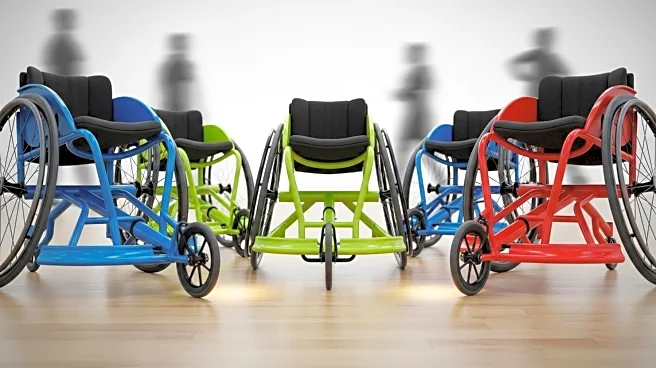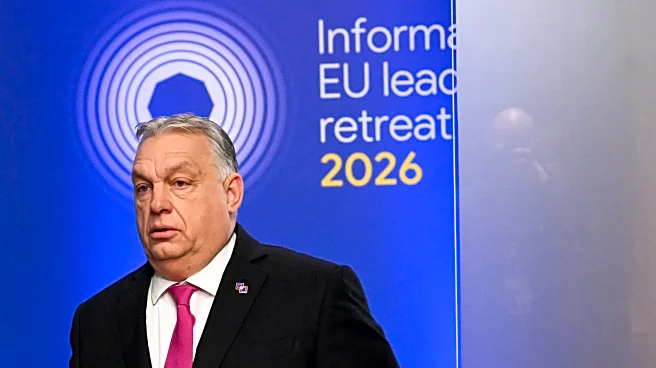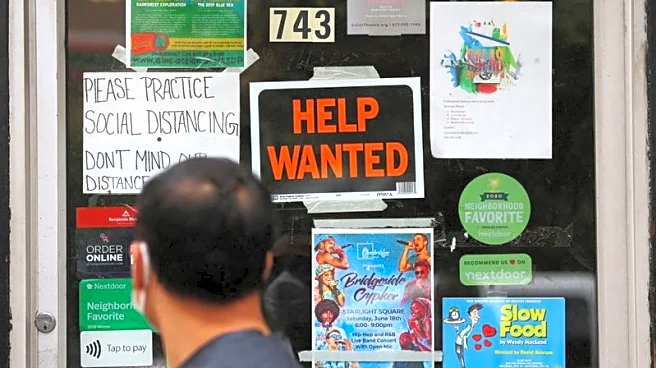What's Happening?
Wheelchair rugby is providing new opportunities for athletes with disabilities, as highlighted by the experiences of Conor Connolly, Chris Meneilly, and Alan Patterson from Ireland's wheelchair rugby squad. Connolly, who suffered a spinal cord injury from a car crash, is preparing for his debut international appearance at the European Championship Division C competition in Norway. The sport has become a significant part of his life, offering him a chance to pursue competitive goals once again. Meneilly, born with cerebral palsy, finds the sport's inclusivity appealing, allowing him to leverage his speed and strength despite coordination challenges. Patterson, who broke his neck in a trampoline accident, credits wheelchair rugby with helping him cope with his injury, emphasizing the sport's role in fostering equality and community among participants.
Why It's Important?
The involvement of athletes like Connolly, Meneilly, and Patterson in wheelchair rugby underscores the sport's potential to transform lives by providing a sense of purpose and community. It challenges perceptions of disability by emphasizing ability and competition, rather than limitations. This inclusivity can inspire broader societal changes in how sports and activities are structured to accommodate diverse abilities. The athletes' stories highlight the importance of adaptive sports in promoting physical and mental health, offering a platform for personal growth and social integration. As wheelchair rugby gains visibility, it may encourage more individuals with disabilities to engage in sports, fostering a more inclusive environment in athletics.
What's Next?
The upcoming European Championship Division C competition in Norway represents a significant milestone for the athletes, offering them a chance to compete at a higher level and potentially gain promotion to Division B. Success in this competition could further elevate the profile of wheelchair rugby, attracting more participants and support. The athletes' dedication to training and competition may inspire others with disabilities to explore similar opportunities, potentially leading to increased investment in adaptive sports programs and facilities. As the sport grows, it may also influence policy changes to enhance accessibility and support for athletes with disabilities.
Beyond the Headlines
Wheelchair rugby's emphasis on inclusivity and competition challenges traditional views of disability sports, promoting a narrative of empowerment and equality. This shift in perspective can have broader cultural implications, encouraging society to recognize and celebrate the capabilities of individuals with disabilities. The sport's growth may also lead to increased advocacy for accessibility in other areas, such as education and employment, fostering a more inclusive society. Additionally, the athletes' stories highlight the therapeutic benefits of sports, which can be crucial for mental health and recovery from traumatic injuries.












